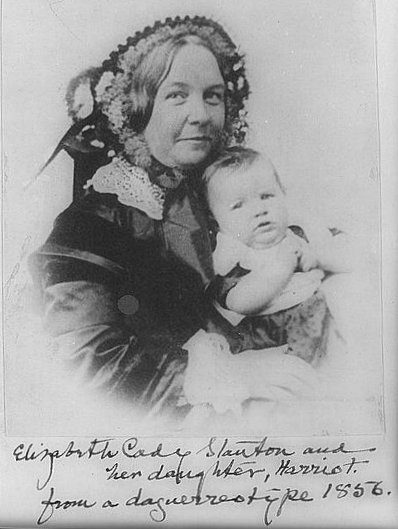Feminists have been attacking the pro-life organization the Susan B. Anthony List for appropriating the name of the pioneering advocate for the rights of women. The president of a museum dedicated to the suffragette said, “To suggest that Susan B. Anthony would support government intervention in a woman’s decision about a pregnancy is abhorrent.”
But two board members of the Susan B. Anthony birthplace museum published a piece in the Wall Street Journal showing that Mrs. Anthony and other important leaders of her movement did, indeed, oppose abortion. In fact, they made their pro-life convictions an important part of their cause.
In their article, Yes, Susan B. Anthony Was Pro-Life [behind a paywall], Colleen Kelly Spellecy and Eric Anthony look at what the movement’s fiery newspaper, The Revolution, owned by Anthony and edited by Elizabeth Cady Stanton, had to say on the subject. “Next to winning the vote for women,” the authors found, “abortion was one of the most discussed topics in the Revolution’s pages. The practice was unanimously reviled and rebuked in more than 100 editorials, letters to the editor and articles,” which called the practice “infanticide” and “child murder.”
The Revolution attacked the sale of abortion drugs.
The editors railed against those “who sell or distribute drugs and nostrums to prevent conception or procure abortion.” This “infamous class,” the paper notes, “make a living by the slaughter of their own race.”
The editors associated abortion with slavery and what they considered the enslavement of women:
“When we consider that women are treated as property, it is degrading to women that we should treat our children as property to be disposed of as we see fit,” Stanton wrote in 1873.
They corrected the unscientific notion–revived today by pro-abortion apologists, including scholars who invoke medieval theologians–that the child in the womb does not become a living baby until “quickening,” when the mother can feel movement in the womb, so that abortion is permissible before that point.
Stanton and Anthony reprinted lectures by Anna Densmore French on the science of embryology. “No greater error exists,” French insisted, than to interfere with “the embryo child” whose life exists prior to “physical movements conscious to the mother.”
But what struck me most was this:
Stanton put a whole new spin on the idea of equality of the sexes—she wanted to elevate men to the level of women. “We are, as a sex, infinitely superior to men, and if we were free and developed, healthy in body and mind, as we should be under natural conditions, our motherhood would be our glory,” she wrote. “That function gives women such wisdom and power as no male can possess.”
Modern feminism seeks for women to become like men–working the same jobs, engaging in combat, having sex without consequences, and otherwise doing everything that men can do. But that mindset exalts men, not women, making men the measure of full humanity.
But for Stanton, women are not the equals of men. They are superior to men. This moral superiority grows out of the essential nature of women, the unique power they have to bring new human beings into existence, to care for them, and to shape them. That is, the capacity to be mothers. Out of motherhood flows kindness, sensitivity, discipline, self-sacrifice, and love.
Men should emulate those qualities. A major theme in the rhetoric of the suffragettes is that giving mothers the vote would result in a gentler, more caring, more peaceful society, toning down the masculine proclivities to war, alcohol, exploitation, and dog-eat-dog Darwinistic competition.
To attack Motherhood by advocating abortion is to attack women.
Photo: Elizabeth Cady Stanton and her daughter Harriot. The original uploader was Zoe at English Wikipedia., Public domain, via Wikimedia Commons














